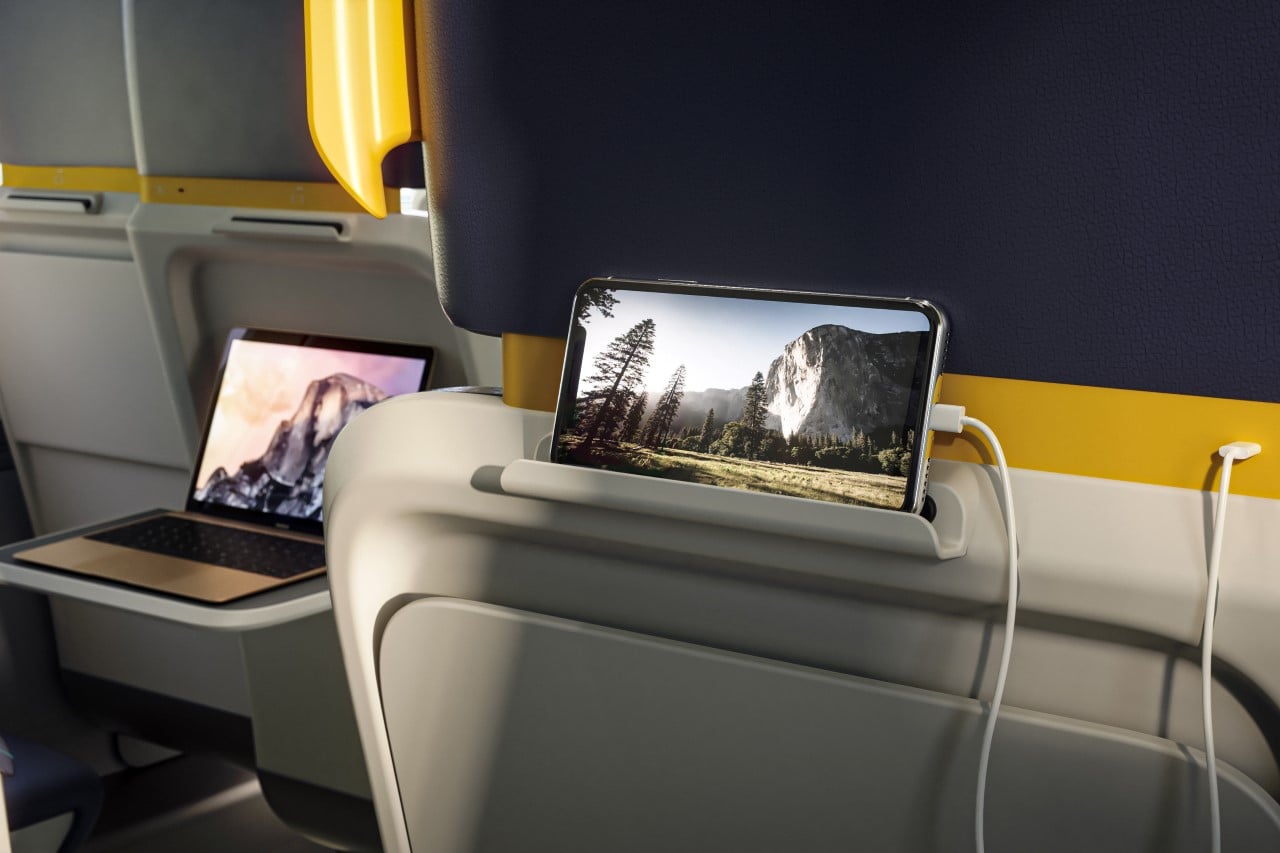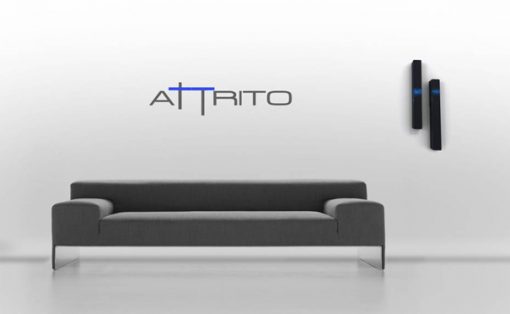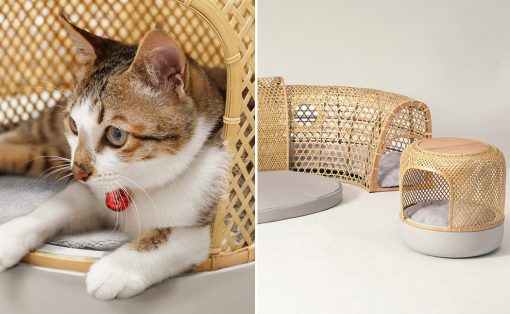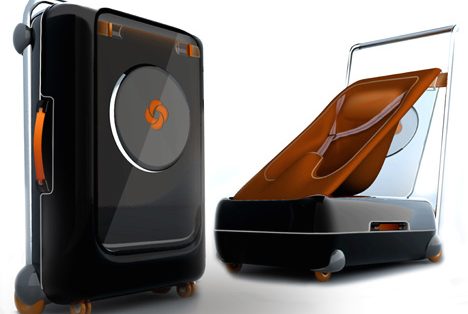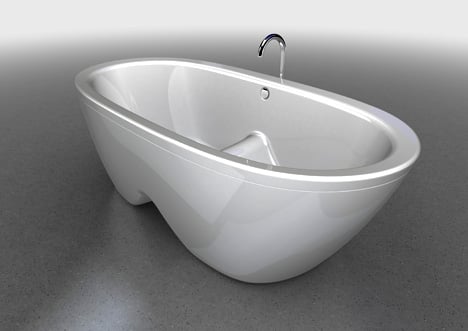Unveiled just today, the Proteus Rail Interior System builds on years of work in this very field by PriestmanGoode, a London-based global Transport Design Consultancy. Its purpose? To upgrade the train experience, putting it at par with the interior of an airline, offering the same level of comfort, flexibility, and functional modularity. The reason? A shift in how people began traveling (or perceiving traveling) due to the pandemic. All in all, the Proteus Rail Interior System aims at bringing more passengers back to the rail by offering them the same experience as they’d otherwise get on a flight.
Designer: PriestmanGoode
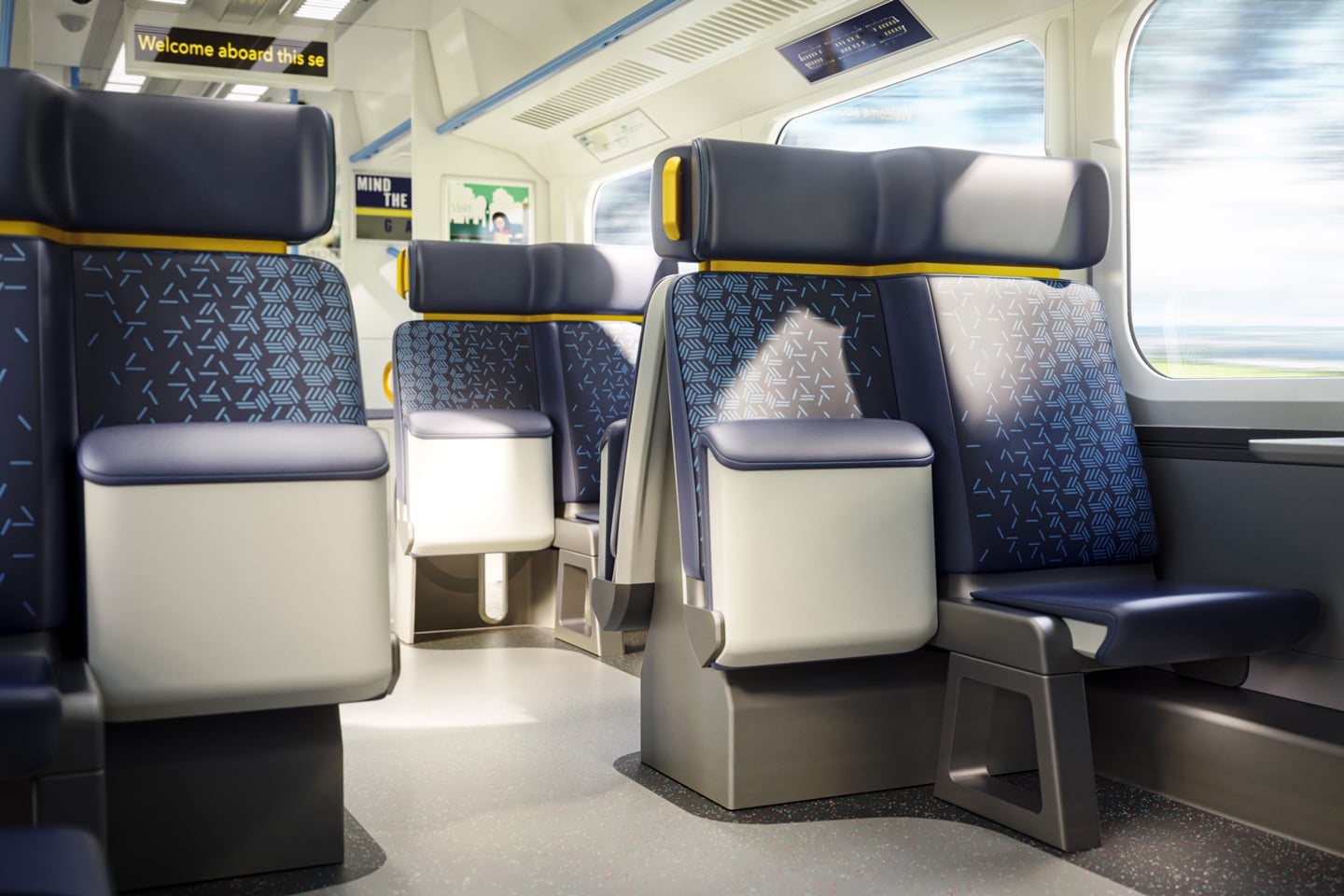
While the overall format for seating remains mostly the same, PriestmanGoode added a few details and features that help elevate the travel experience. For starters, instead of regular rows of seats, the Proteus uses a staggered seating arrangement where no two seats are perfectly aligned. A feature designed to eliminate ‘shoulder clash’, it also provides each seater with their own dedicated side headrest to lean against while sleeping, also doubling as a privacy guard of sorts.
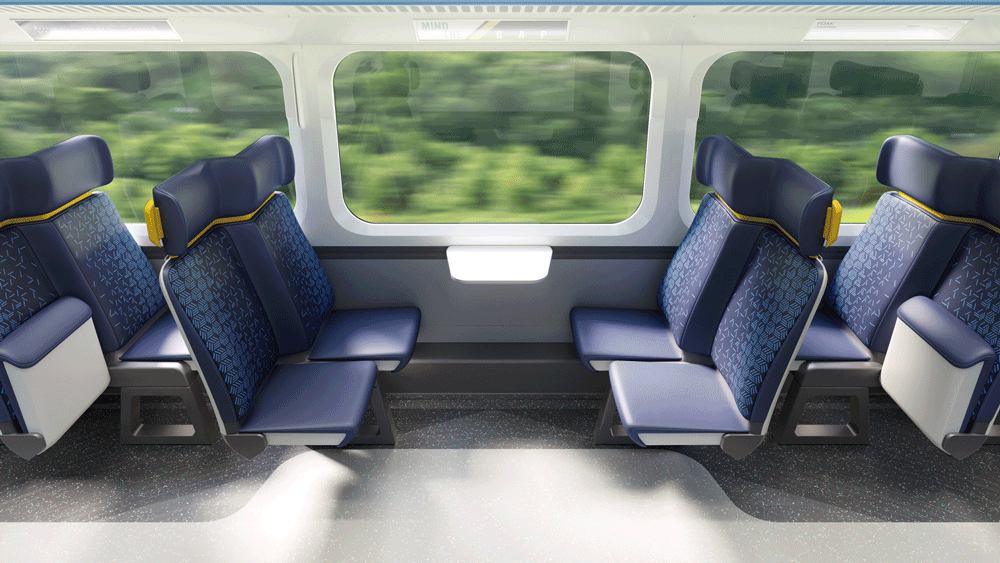
The interiors sport a 2×2 seat arrangement, resulting in a wide aisle that’s easy to navigate through – especially if you’ve got luggage, a bicycle, a wheelchair, or a baby stroller. To easily store/position large items in a way that wouldn’t cause them to block the aisle, the seats fold upwards (like in movie theaters), allowing large objects to be placed beside you without crowding the pathway for people to walk through. PriestmanGoode mentions that the middle seat is easily the most underused (and unpopular) in any 3×2 seating arrangement, causing them to remove it altogether to help widen the aisle.
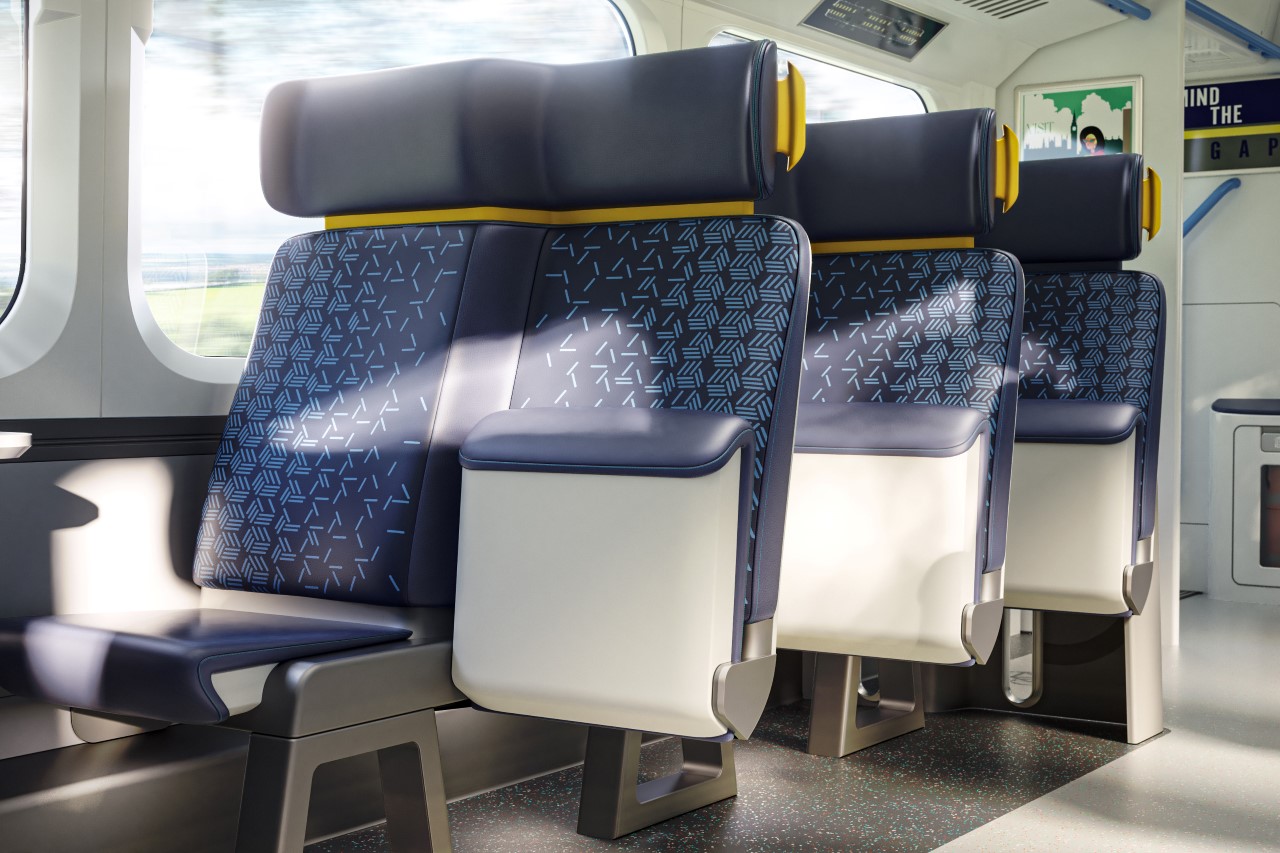
“Future journeys must be the best possible experience to compete against the convenience of working from home and get people out of their cars,” added Mike Lambourn, senior project head at PriestmanGoode. “The staggered seat design is an innovation that provides a greater sense of space. The tip-up seat pan on aisle seats encourages a flow of passengers to the fixed window seats first and creates valuable space for passengers who want to complete the first or last mile of a journey on a fold-up bike – as an example.” In turn, the fold-up seats at the entrance of the aisle provide space for handicapped people to position their wheelchairs, allowing them to be seated right near the entrance/exit for greater convenience.
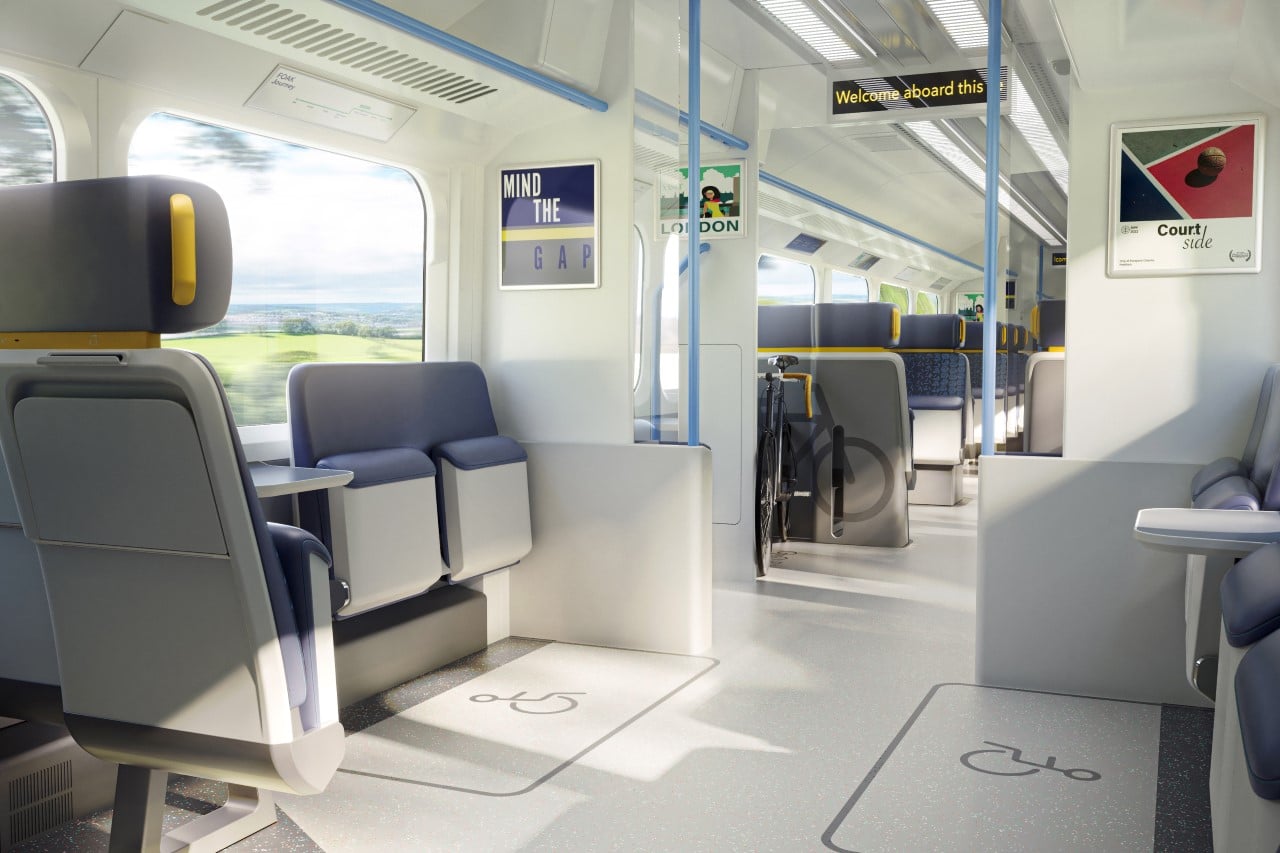
Additionally, slots provided in the back of the seats near the entrance let you dock your bicycle while commuting. This uniquely holistic approach takes note of every single use case and accounts for every need and scenario.
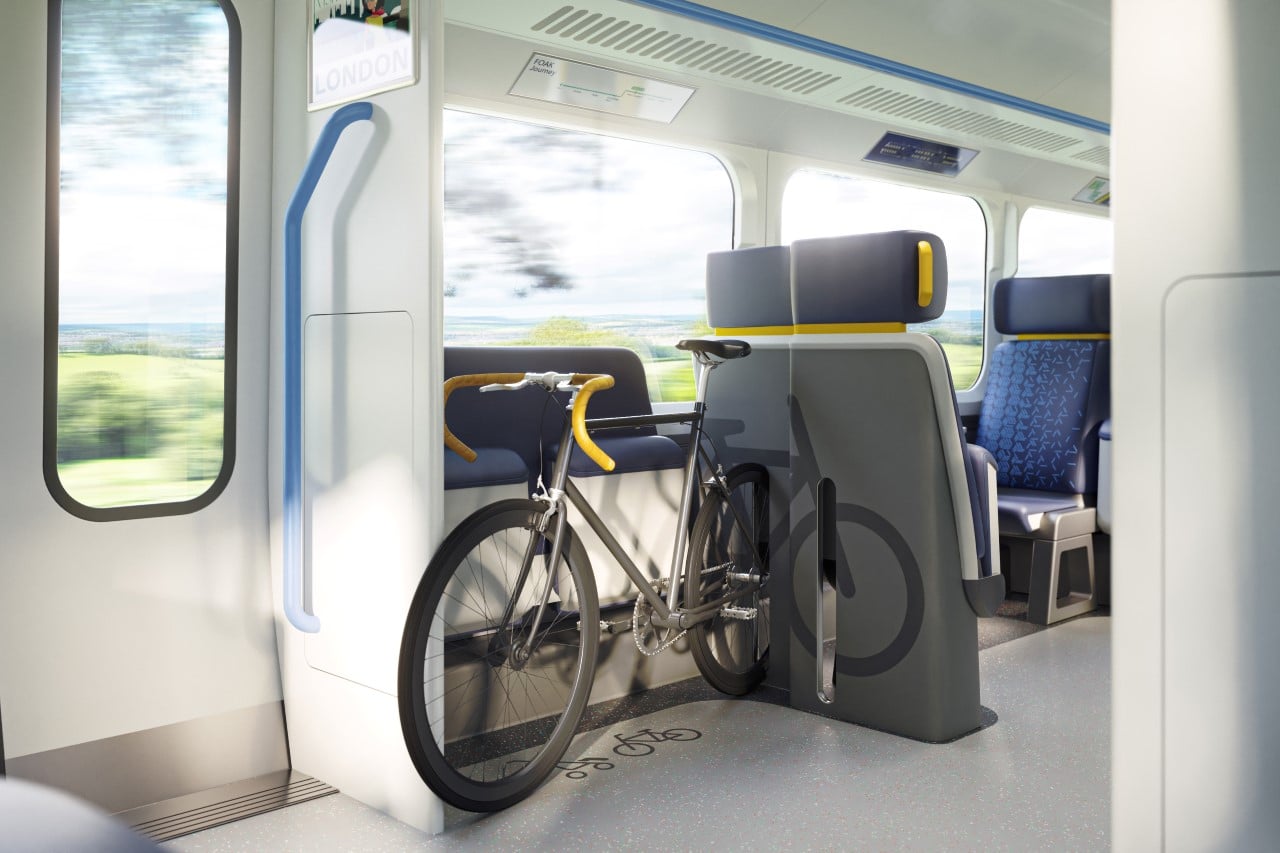
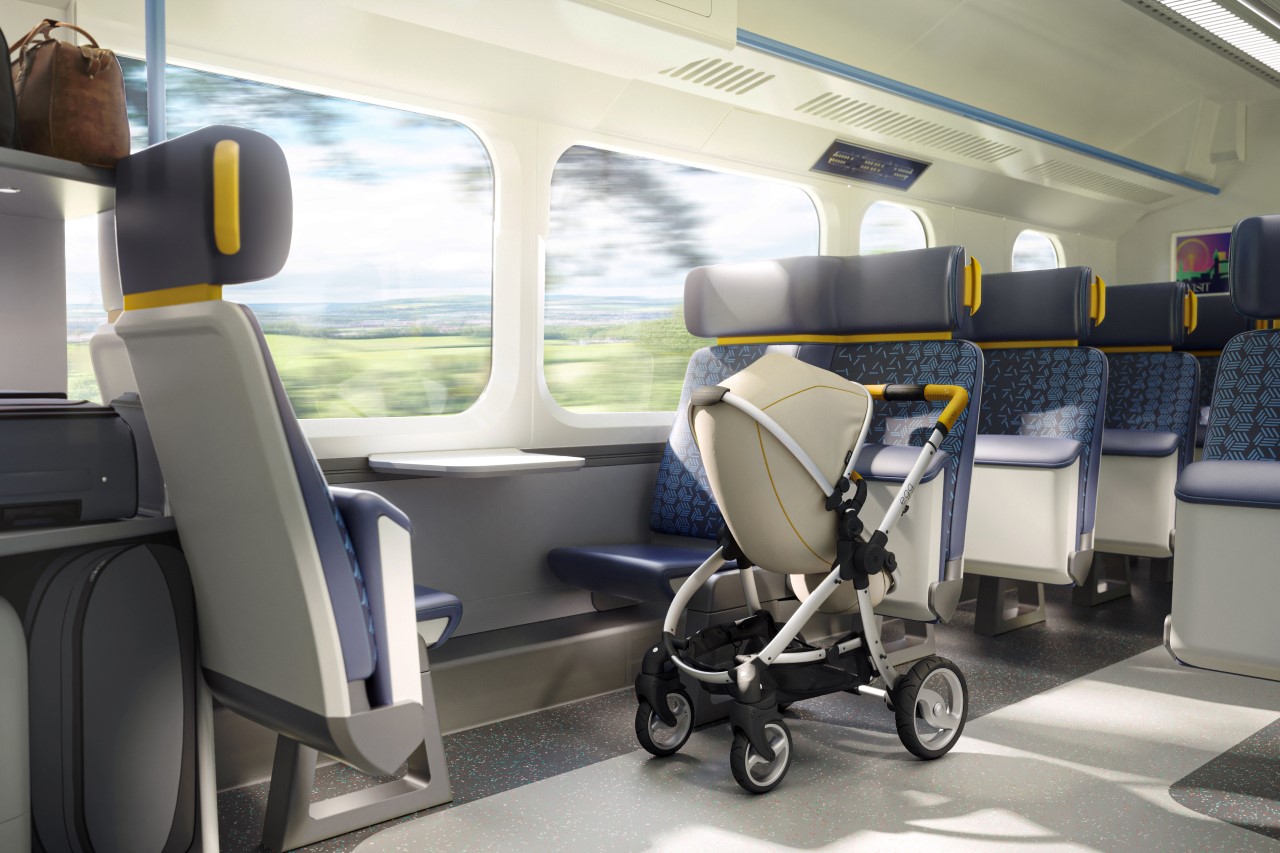
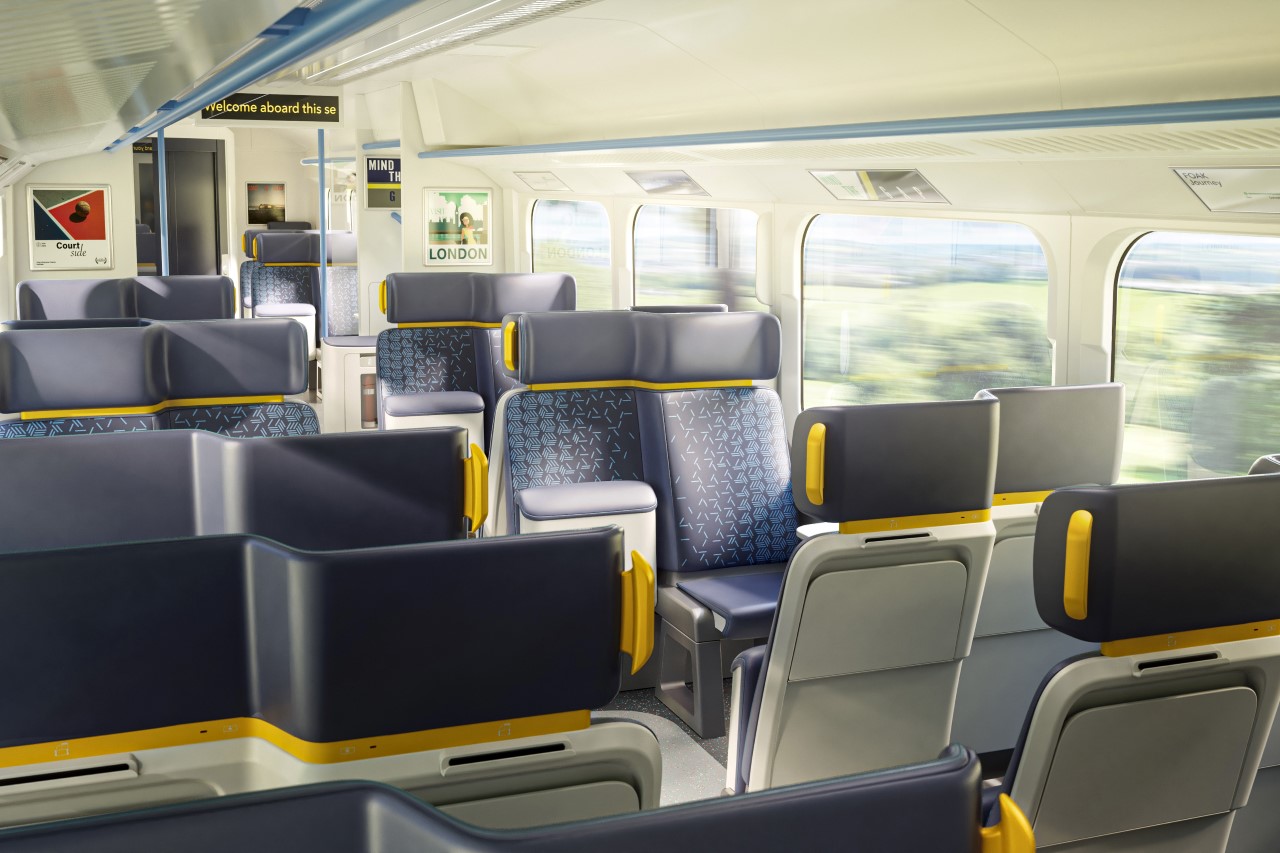
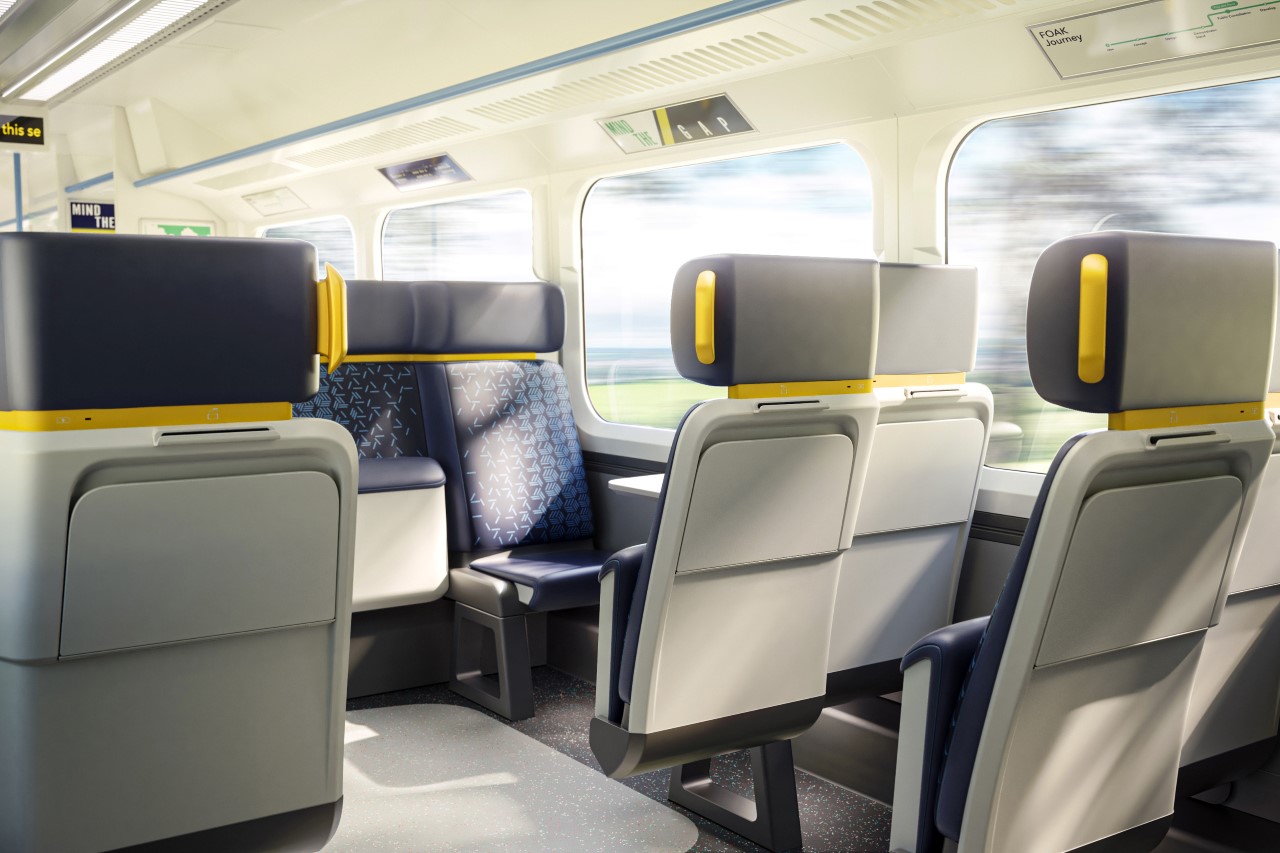
Additionally, for longer journeys, each seat comes with a flip-out table in front of it and a phone-stand right above. Every seat is equipped with a USB-C charging port to power your gadgets, and the table/stand allow you to get work done or keep yourself entertained during the commute, quite like with an airplane. Alternatively, the table could obviously be used to eat meals or read books too.
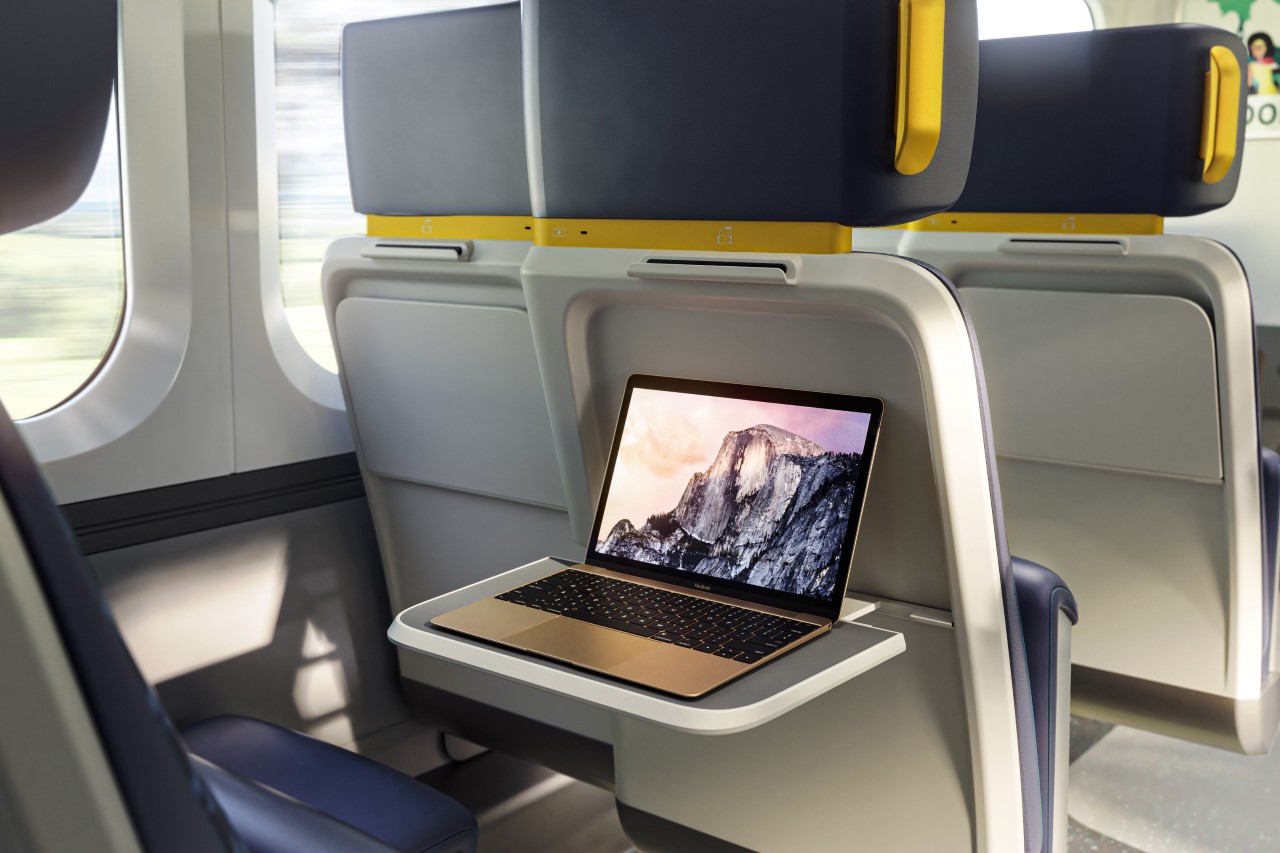
PriestmanGoode was awarded funding for the project through the Department for Transport’s First of a Kind competition run by Innovate UK, with their application sponsored and supported by project partners Angel Trains and Chiltern Railways. A specially constructed ‘demonstrator’ unveiled today in Marylebone Station allows members of the public to test the new seats and aspects of the train layout. For people looking to experience the Proteus for themselves, the Proteus demonstrator is located beyond the ticket barriers at Platform 1 in Marylebone Station until Sunday 3rd April. Earlier last year, PriestmanGoode unveiled Air4All, a special disability-friendly aircraft seat design created in partnership with Flying Disabled and SWS Certification.
